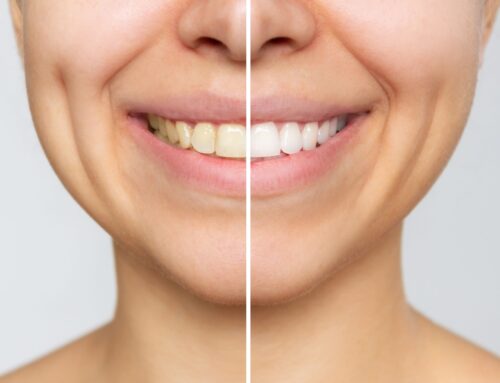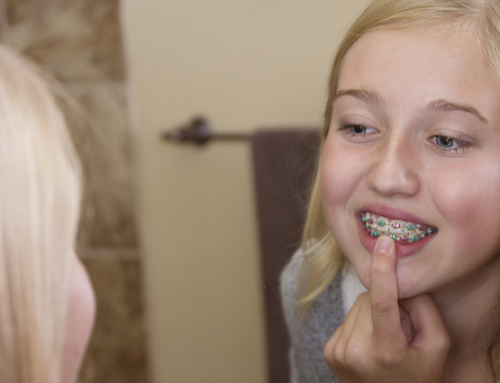Top Myths and Misconceptions about Pediatric Dentistry
Pediatric dentistry deals with the oral health care needs of children from infancy through adolescence. Pediatric dentists are qualified and experienced in providing care for a child’s gums, mouth, and teeth throughout the different stages of their childhood. There are many myths about pediatric dentistry that may be detrimental to your child’s dental health.
As a parent, beginning early dental care is important so that your child gets a chance to establish a strong relationship with their dentist; one that makes going to the clinic for cleanings and exams a positive experience. Nevertheless, it is common for parents to be a little susceptible to or even misinformed about the importance of taking their child to a pediatric dentist, due to the few myths and misconceptions soaring around related to pediatric dentistry. The most common pediatric dentistry myths include:
1. Baby Teeth Don’t Require Any Oral Care
It is common for families to hear from other people how baby teeth are not important since they fall out anyway. Sadly, this statement is completely false. Skipping on dental care in the child’s early years can result in major issues in the future. Parents should keep in mind that baby teeth act as placeholders for adult teeth, and losing them fast due to poor oral care can result in the need for braces owing to overcrowding or crookedness.
Baby teeth also help your child form good dental care habits that tend to last a lifetime. For that reason, you should start brushing your child’s teeth at the earliest signs of baby teeth.
2. There Is a Specific Time to See a Pediatric Dentist
Remember that it is never too early to get your child checked out by a pediatric dentist. Usually, it is ideal to arrange for your child’s first dental appointment soon after the baby tooth (teeth) start appearing. However, bringing them to the dentist before their very first birthday is a great way to start familiarizing them with the dentist’s office so that they don’t become fearful of experience later on.
3. Sugar Causes All Child Oral Care Problems
Most parents assume that sugar is the root of all child dental problems. While this assumption is not wrong, it is not entirely true. The leading cause of tooth decay is not sugar itself, but the amount of time the sugar stays on the surface of the tooth. Bacteria living in the mouth feed on the sugar, thus eroding the tooth’s enamel.
4. Light Bleeding Is Okay
When it comes to adults, light bleeding during brushing isn’t always a good sign, but it is unnecessary to make a big deal about it. In most cases, the bleeding is usually the result of the plaque and other dirt breaking down on the gums.
However, since children usually don’t experience severe plaque cases, light bleeding may mean that you are brushing your child’s way too hard and hurting their delicate gums.
5. You Don’t Need to Floss Baby Teeth
Just because baby teeth are not permanent does not mean that you should neglect them. Food particles still get stuck in between their teeth. You need to use dental floss to get rid of the food particles. Brushing only cleans 30% of plaque and bacteria from your teeth, so you need to use dental floss too.
We recommend that you help your child with dental flossing as soon as they have two teeth that touch each other (called brushing). When small children cannot do it for themselves, a parent should do it for them until they can brush and floss on their own
6. Tooth Decay in Baby Teeth Doesn’t Matter
Tooth decay is common in toddlers. The onset of tooth decay can be attributed to a number of factors, but poor oral care from the parents or caregivers might have something to do with it. If not treated at an early age, this condition may result in serious dental health issues later on and even require braces! Remember that baby teeth act as placeholders for adult teeth.
If you want your child’s smile to remain pristine all their lives then give them proper brushing twice a day. Without good hygiene, they will soon fall victim to bacteria-induced cavities which could ultimately lead to other problems like gum disease or periodontal diseases such as swollen gums (gingivitis).
7. Adult Dentistry is the Same as Pediatric Dentistry
Pediatric dentists are specialized to work with children. They study developmental stages and characteristics of children and how dentistry affects their overall health. You can go to a general dentist, but often they will refer you to a pediatric dentist because of their unique skills and expertise in working with children.
8. Kids Should Use a Lot of Fluoride
Fluoride is a good thing. It helps kids’ teeth and prevents cavities. But it can be too much if you give it to them for the first 8 years of their life. If you do too much, they may get stains on their teeth or white spots that are hard to get rid of. The solution is not to use as much fluoride now, and then it won’t happen later when they’re older.
9. You Should Wait Until All Babies Teeth Come In
It is recommended that you take your baby to the dentist when they are one year old. This is because kids can get cavities when they have their first tooth. A pediatric dentist will make sure that your child’s teeth and gums are healthy, help you create an excellent home care routine, check if the child’s oral development is on track, and chat about habits like thumb sucking or pacifier use with you. Children who start dental visits early will be used to the sights and sounds of a dentist’s office and may build a rapport with the doctor and team members.
If your child has their first tooth, give us a call and schedule a pediatric dental appointment! Our kid friendly dentist offices are located in Spring Hill, Murfreesboro, Mt. Juliet, and Cool Springs, TN.





